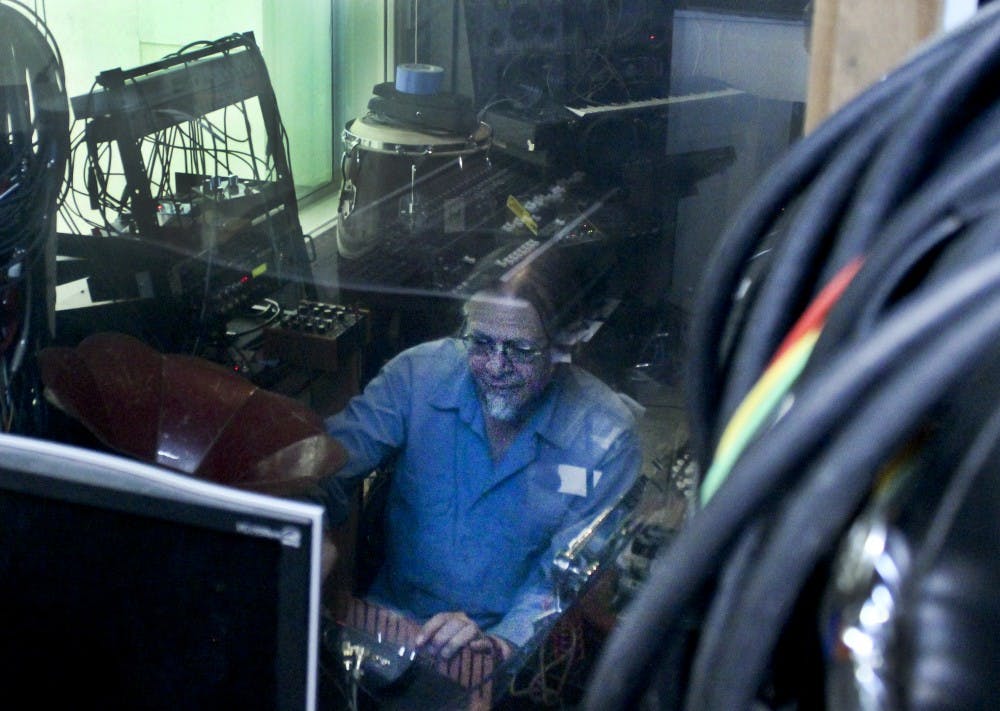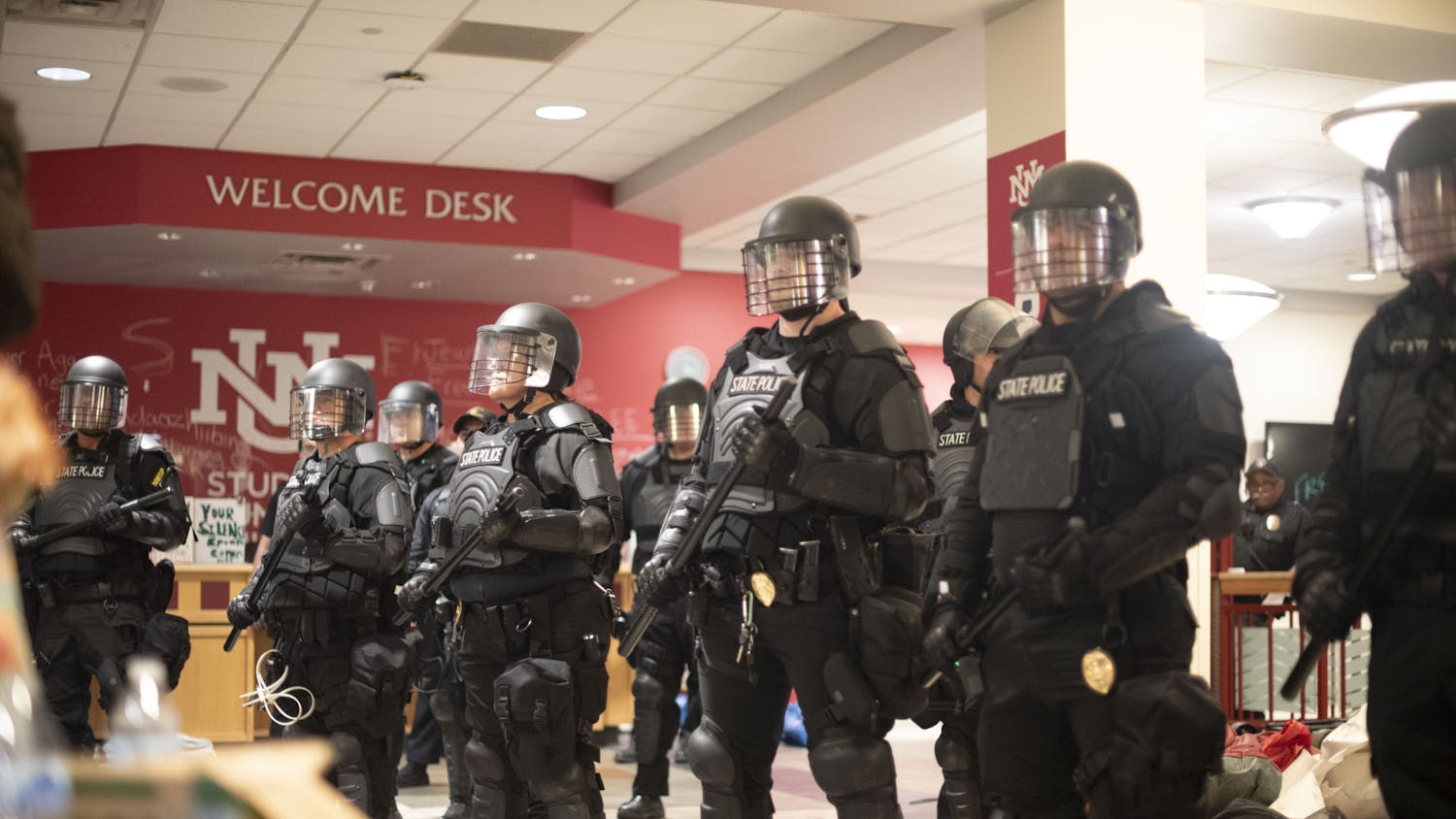culture@dailylobo.com
An unearthly wail rattles the bells and bars of an ornate birdcage that contains a small pair of speakers. A horse marionette gallops over the body of a miniature cello, which connects to an amplifier. All around the room, old-fashioned typewriters rub elbows with synthesizers, mixers and microphones.
These are called Chuppers by Manny Rettinger, a UNM professor and resident recording engineer, teacher and music-maker.
Patched together from anything and everything, a Chupper could be a synthesizer attached to an old Victrola horn, the disembodied needle of a turntable scribbling over broken records or the insides of a piano surrounded by mics, mallets and the odd plastic eyeball.
On a typical Monday night for the Electric Ensemble — a UNM class as well as a weekly extracurricular group — you can find students busy at work in a tiny studio in the Center for the Arts, coaxing all manner of beats, drones and melodies from these stacks of equipment and cables that look more like modern art than musical instruments.
“They’re like little sculptures,” said Rettinger. “Each Chupper has its own sound, its own speakers. Each is its own personality, its own self.”
Rettinger has been a mentor and teacher to high school and college students for more than 30 years. The Chuppers were born out of an experiment in trying to make music technology for recording more accessible to beginners.
“I was trying to find a way to teach recording. And a lot of it is you have a mixer, you have all these knobs — and it’s just too daunting,” he said. “So I thought, ‘I’ll put together these little things that just do something really specific,’ and before I knew it, they started creating themselves.”
Rettinger’s first Chupper was relatively basic: a keyboard, processor, mixer and speakers set up on a cart to be completely portable. From there, Rettinger began experimenting with incorporating nonelectronic elements that would affect the sound. He said the project took on a whole new direction when he included an old Victrola horn on the speakers of one Chupper.
“After that, they really started to become more and more of characters,” he said.
Rettinger is motivated to build these hybrid electric-acoustic instruments because he wants to create sound in a way nobody has before. He increasingly uses unconventional objects such as old record horns, plastic domes and pieces of other instruments to redirect sound from speakers and play with the acoustics of a space.
“The air and the room start doing things to the sound,” he said. “Like with Western classical music, the hall is part of the instrument and the sound. It’s not just the instrument, but what that instrument does with the room.”
Get content from The Daily Lobo delivered to your inbox
Rettinger defines a Chupper as not only the instrument, but the person who plays it. The Chuppers as a group have an open-door policy; the class is open to all who are interested, regardless of experience. Students learn by playing and experimenting rather than by listening to lectures, and it’s strongly emphasized that there is no right or wrong way to make sound.
“Anybody can come in here and do something, contribute something, even if they’re not a musician, because being a ‘musician’ is so subjective,” said Micah Hood, a music graduate student and long-time Chupper. “Historically, all music has had some form of improvisation, including Western classical music. Improvisation is a part of who we are. It totally changes your playing. When you find the inadequacies and imperfections in this is so awesome, and you appreciate it more.”
Besides experimenting with electronic sound, Rettinger provides students and Chuppers with an opportunity to become familiar with highly specialized equipment and technology. Haley Baysinger, Rettinger’s protégé and collaborator, said it can be difficult to learn the art of recording and sound engineering without the kind of access and hands-on experience Rettinger offers students.
“If you’re not getting real-world experience, it’s not something you can learn in a classroom,” Baysinger said.
The Chuppers
perform tonight on KUNM-FM 89.9 at 10:30 p.m.
“A Cabinet of Curiosities”
featuring The Chuppers, Carmina Escobar and Monica and Marisa Demarco
Saturday, March 2 at 7:30 p.m.
The Kosmos, 1715 Fifth St. N.W.
$7, all ages
The Chuppers
7 p.m. Mondays
Room 1136, Center for the Arts
Free






